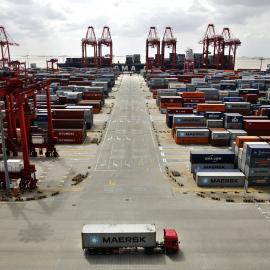To the Editor:
Amy Myers Jaffe and Robert A. Manning may be entirely correct in pointing to the misguided race for new sources of energy amid an upcoming oil glut ("The Shocks of a World of Cheap Oil," January/February 2000). Certainly America's diminished dependence on Persian Gulf oil will reduce its willingness to spend millions of dollars on defense there. And the authors usefully acknowledge the relationship between falling oil prices and improvements in technology and efficiency.
But there is more to geopolitics than oil. In particular, the economic and political futures of the Central Asian and Caucasian states may seem remote to Americans. But they do matter a great deal to Russia, Iran, China, India, and Turkey -- that is, to every major power in Eurasia -- because of border stability, ethnic conflict, and national prestige, not simply because of energy security. We should not forget that instability in Eurasia has always spread to the Atlantic world. The next global balance of power will be brought about by these states and must be anticipated through their eyes. It cannot be divorced from overall U.S. interests in the next few decades, nor can the United States remain aloof from the problems that most concern Eurasia.
Thus NATO and other Western organizations are justified in paying attention to the region. And this involvement predates any alleged attempts to defend pipelines or thwart Russian, Iranian, or Chinese interests; rather, it, like the Partnership for Peace (PFP), was designed as a vehicle to align Western security interests with those of the post-Soviet states, including Russia. NATO's enlargement and its actions since 1995 have made this difficult, but this has little to do with any nefarious "new PFP commitments."
Meanwhile, the U.S. Agency for International Development and other U.S.-backed sources do, in fact, support "technical training, agricultural reform, humanitarian aid, and institution-building." The reason why U.S. military involvement with these countries appears proportionally greater is because it falls within the budget of the government department granted the most funding by Congress, including for missions like English-language training -- which could easily be handled by other agencies or, ideally, by nongovernmental organizations.
Kenneth Weisbrode
Research Associate, International Institute for Strategic Studies
